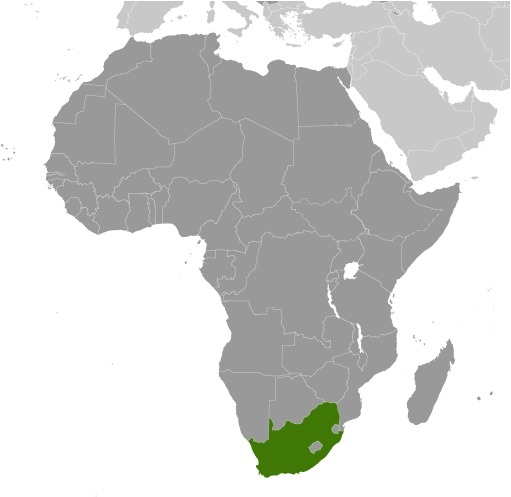There is an old adage that states, “politics make strange bedfellows.” South Africa’s upcoming May 29 national elections don’t beg to differ. Out of the not-so-clear blue, the United Kingdom (UK), members of the United States Congress, and the head of the Oppenheimer family founded Brenthurst Foundation have donated millions of dollars to the opposition—including the Democratic Alliance (DA), and have provided a cacophony of ill-spoken words—against the African National Congress (ANC) led South African government.
Greg Mills, director of Brenthurst, wrote about the ANC on the foundation’s news site, calling the party, “full of its brand of sanctimonious ideological bunkum.” He added, “In a distorted mirror image of Pik Botha’s missions to see the ‘good intentions’ of South Africa during apartheid to the U.S.,

International Relations and Cooperation Minister Naledi Pandor has been on a mission to sell her governments’s somewhat bedraggled foreign policy,” Mills wrote.
Not to be outdone, and without proof, and not following diplomatic channels, the UK has warned British travelers “that South Africa was not a desirable country to visit due to crime, load shedding (done to decrease electricity blackouts), kidnappings and the rise in attacks on tourist,” reported South Africa’s News24.
In response to these unfounded claims of a “possible terror attack” in South Africa, Zane Danger, the Director General of the Department of International Relations and Cooperation (DIRCO), stated, “We want proof.”
“We asked them (UK), where does this ‘credible’ threat come from? They still have not given us a proper explanation. There is no evidence why we would be a target for a terror attack, and we are saying if you have credible information, give it to us, which they have not done,” Danger said, reported News24.
Siphamandla Zondi, professor of politics and international relations at the University of Johannesburg, believes the UK’s latest travel advisory has more to do with South Africa’s foreign policy decisions concerning the Russian-Ukraine conflict and its history of support for occupied Palestine.
“They do send signals to one another, especially when they want to see a change in behavior. … I honestly do not think this is a mistake, but I think the UK is playing a diplomatic power game to signal that South Africa should look at its own problems and not poke its nose in the domain of the West,” Zondi explained to News24.
Not to be outdone, a letter dated April 12 addressed to SA President Cyril Ramaphosa and signed by six U.S. Congressmen takes the continent’s most influential nation-state to task.
The two-page letter accuses South Africa of filing “unfounded charges in the International Court of Justice (ICJ), falsely alleging genocide in Gaza.” Add to that, they accuse South Africa of extending “beyond the unfounded ICJ case to now miscarry justice against your own citizens serving their second allegiance (which is Israel).”
In December 2023, the government of South Africa warned that naturalized South Africans could have their citizenship revoked for joining foreign armed forces engaged in wars the country didn’t agree with.
Dr. Mavuso Msimang, wrote recently in the Mail & Guardian, an article titled, “Why rebuke Naledi Pandor for safeguarding South Africa’s sovereignty?” Disagreeing with a domineering big country always entails risks, Dr. Msimang explained.
“It stands to reason that a responsible government (in this case SA) must always act in the best interests of its citizens. This requires, inter alia, a timely search for viable alternative relationships, the better to prepare them for sacrifices that may need to be made.
Mills and Hartley (of Brenthurst) seem to think South Africa should automatically pay obeisance to the paramountcy of U.S. geopolitical interests. The Western nations’ handling of the murderous war in Palestine has shocked and perplexed many people in the world, U.S. citizens included,” the article stated.
Dr. Msimang, 82, has held several senior positions in public sector organizations, including South African Tourism, South African National Parks, and the State IT Agency (SITA), where he successively served as chief executive officer.
“Pandor’s Brenthurst critics say ‘the ANC was viewed as a Soviet-backed enemy. By associating itself so closely with Russia and China, the ANC is confirming that stereotype.’ I wonder what advice they would dispense to South Africa regarding its membership of BRICS, which comprises Brazil, Russia, India, China and South Africa.
It came into existence to bring together important developing countries to challenge the political and economic power of the wealthier nations of North America and Western Europe.”
Another adage, not to be taken lightly, says: “Better to die on your feet than live on your knees.”
Follow @JehronMuhammad on X, formerly Twitter













